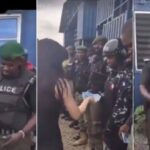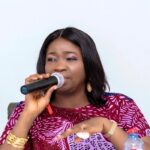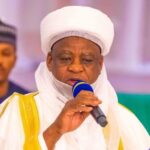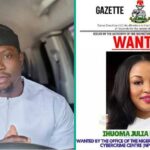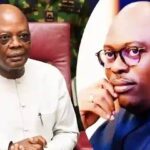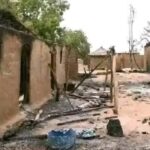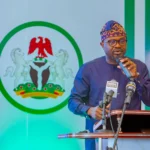
I, Muhammadu Buhari, do solemnly swear that I will be faithful and bear true allegiance to the Federal Republic of Nigeria; that as President of the Federal Republic of Nigeria, I will discharge my duties to the best of my ability, faithfully and in accordance with the Constitution of the Federal Republic of Nigeria and the law….So help me God.”
With these words read amidst thunderous applause from Nigerians and friends of the nation who thronged the Eagle Square, Abuja on the morning of May 29, 2015, President Muhammadu Buhari, formally took over the responsibility of leading the most populous black nation from Dr. Goodluck Jonathan, who he had earlier trounced at the March 28 presidential polls.
Buhari climbed into power on the back of a nationwide campaign for change. During the campaigns that preceded that historic election, the President’s party, the All Progressives Congress, dangled many irresistible mouth-watering offers before the electorate. The party promised a government that would be a clear departure from what the then ruling party, the Peoples Democratic Party, was offering.
By the time Buhari took his oath of office and oath of allegiance therefore, expectations were understandably high. Nigerians were looking forward to the much-promised change in all the sectors. The President had to stay away from the Presidential Villa for about three weeks for renovation to be completed. At least, based on what his aides said.
On Sunday 21st June 2015, the President finally relocated to his official residence. Expectedly, he operated from his office inside the Presidential Villa for the first time on Monday. Like a man who swallows a big mortar and can neither stand nor sit, 72-year-old Buhari has since he resumed in the Oval Office (that is what the President’s office is called), thrown himself into the hard task of governing Nigeria, often described as a complex nation.
His first assignment on his first day in the office was to meet with a few aides that are currently assisting him, pending the time he will constitute his cabinet. He was joined at that meeting by Vice-President Yemi Osinbajo.
While that meeting was going on, service chiefs arrived the Presidential Villa for a meeting with him. He presided over that meeting during which the country’s war against insurgents was reviewed. It was at that meeting that Buhari directed the dismantling of military checkpoints in secure parts of the country.
After the meeting, the President did something that has been described as unprecedented- he met with members of the State House Press Corps, saddled with the responsibility of disseminating his activities to the public. He was accompanied to that meeting by his Special Adviser on Media and Publicity, Mr. Femi Adesina; and his Senior Special Assistant on Media and Publicity, Mallam Garba Shehu.
It was Adesina who set the tone for the meeting which was held inside the Briefing Room adjoining the Council Chambers. There, he told reporters that Buhari found it important to “pay a courtesy visit” on them on his first day in office and solicit their support.
The President did not mince words in saying that his good or bad relationship with the media will be determined by Adesina.
He said, “It is not by accident that I got the best of you to be the Special Adviser (on Media and Publicity), one of the 15 aides I had to get clearance (for) from the Senate. He is one of the best that I can have as special advisers. I brought one of the best of you so that he can consistently defend me against you. Whether my job is a difficult one or easy, it is up to him, but I am here to thank you in advance for what good and ill you are going to do to me.”
It was also at that meeting that Buhari made his first comment on the status of the nation bequeathed him by Jonathan, saying he inherited an empty treasury and a nation weighed down by huge debts running into millions of dollars.
With a few more informal meetings with some individuals, the President concluded activities scheduled for his first day in office.
Those who thought Monday was too busy for the President quickly changed their thoughts as activities started unfolding on Tuesday. It was an action-filled day. Buhari started the day by granting an audience to the 36 state governors. Almost all the governors were either present or represented since it was their first meeting with the President.
Buhari again grabbed the headlines at that meeting when he among other things accused officials of the recent past government of abandoning all financial and administrative instructions put in place in parastatals and agencies. He described their actions as responsible for throwing the country into financial crisis, which he said was worse than that of the Second Republic that led to the 1983 military coup he partook in.
After the meeting, Buhari performed diplomatic duties when he granted audience to the Cameroonian Minister of Territorial Administration and Decentralisation, Mr. Sadi Emmanuel, who was a special envoy of President Paul Biya. It was at that meeting that he accepted to visit Cameroon after the Ramadan fast in continuation of his consultations on the fight against Boko Haram.
Buhari also met with the outgoing Palestinian Ambassador to Nigeria, Dr. Montaser Abuzaid, during which he pledged that Nigeria would continue to support all efforts aimed at the peaceful resolution of the Middle East conflict.
Not long after that, the Sultan of Sokoto, Alhaji Sa’ad Abubakar III, led some traditional rulers from the North under the aegis of the Northern Traditional Rulers Council to a closed-door session with the President. They made recommendations to the President on issues that are related to national development. Buhari also briefed them on efforts being put in place to recover stolen funds and how the United States and some other countries had promised to assist his administration in that regard.
With that meeting over, the traditional rulers joined him for the traditional breaking of Ramadan fast in the new Banquet Hall of the Presidential Villa. They were joined by some state governors.
That was not all. At about a few minutes before 11pm, Buhari also went into another round of meeting with state governors elected on the platform of the APC. Issues discussed at the parley included the leadership crisis rocking the National Assembly which was caused by the emergence of leaders other than the ones approved by the party leadership. That meeting ended in the early hours of Wednesday. The President retired into his official residence at about a few minutes before 1am.
As early as 10am on Wednesday, Buhari also met separately with Kaduna State Governor, Mallam Nasir El-Rufai; and his Imo State counterpart, Rochas Okorocha. The Chairman of Bi-Courtney Group of Companies, Dr. Wale Babalakin, was also seen walking towards the President’s office shortly after. In all, Wednesday was a bit free.
On Thursday, Buhari granted audience to the President of the Economic Community of West African States Commission, Mr. Kadre Ouedraogo. At the meeting, the President insisted that regional and international cooperation was needed to ensure victory over terrorism in Nigeria and other countries.
With Buhari’s relocation to the Presidential Villa, visible changes were noticed during the week. The nature of visitors to the Villa has also changed. Under former President Jonathan, a large percentage of visitors were either chieftains of the then ruling PDP or people that have links with the party. That has given way to chiefs of the APC, who are the current power brokers.
Even in terms of dressing, many visitors and villa workers alike were fond of wearing the Ijaw traditional dress and Fedora to match during the Jonathan Presidency. This week, the Hausa way of dressing dominated the seat of power with many seen in well-starched babariga and caps to match.
The security arrangement in the well-fortified premises is also currently undergoing reorganistion. Officials of the Department of State Services have been withdrawn from their beats in the “inner circle” and replaced by plain-clothed military personnel.
The population of Muslims praying at the mosque located behind the President’s office also surged from Monday when Buhari started joining them for prayers. Once the President is inside the mosque, a few plain-clothed security operatives will quickly surround the place of worship located between the President’s office and the Council Chambers. Apart from the regular prayers, Buhari also joined faithful to listen to Ramadan Tafsir in the mosque during the week.
On Friday, Buhari made history as the first President to hold a Jumat prayer inside the Presidential Villa. He led Muslim aides and other State House workers to hold the prayer inside the mosque behind his office. The mosque’s capacity was overstretched as those who prayed outside were three times more than those who managed to find space inside with the President.
As the President begins his second week in his office, many Nigerians are expecting him to announce more appointments and move faster in fulfilling his numerous electoral promises.
Also Read: Highlights Of President Buhari’s Administration For The Previous Week.


